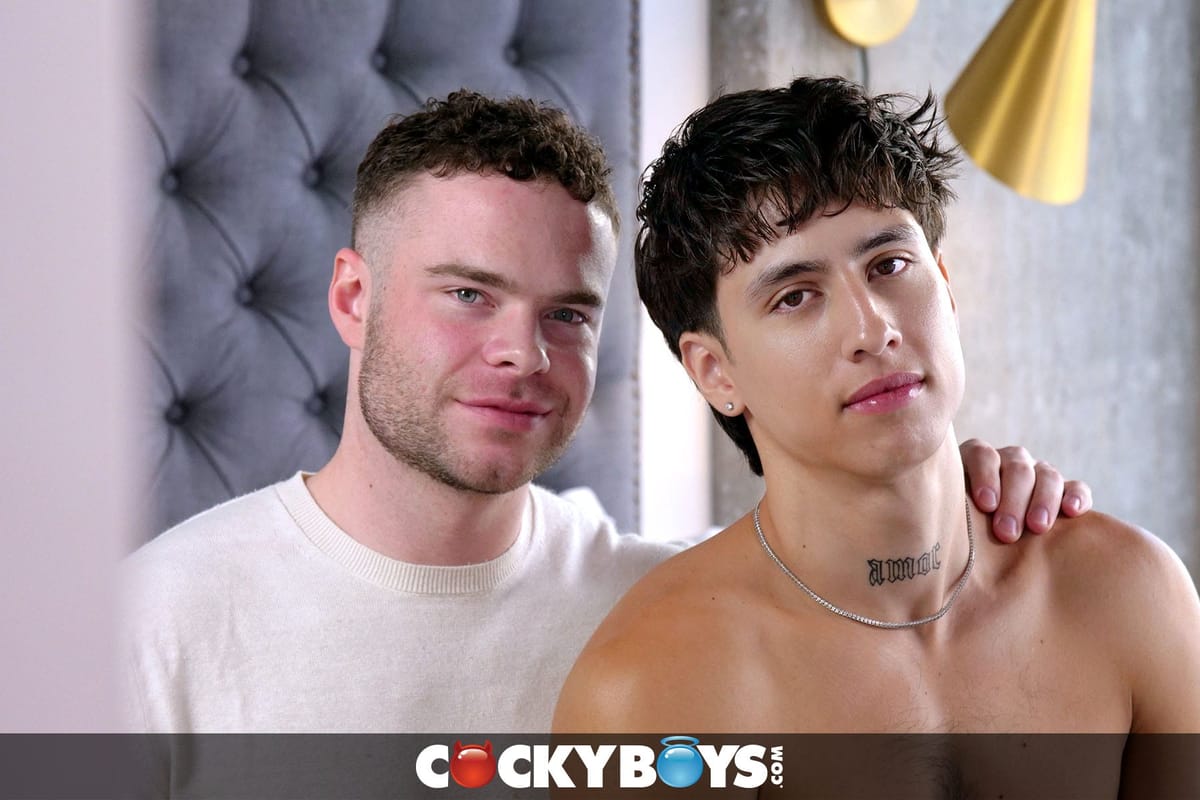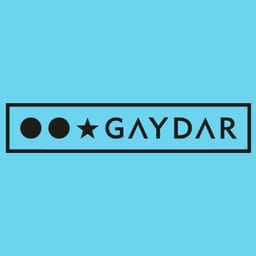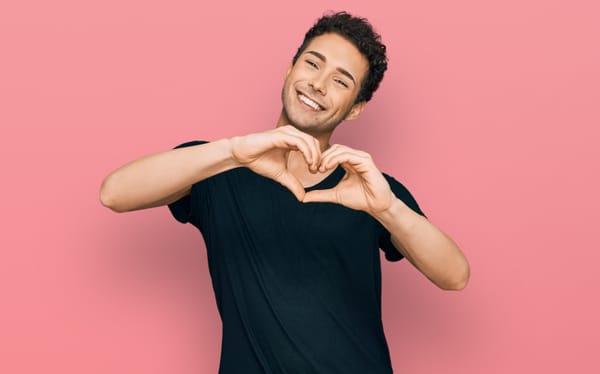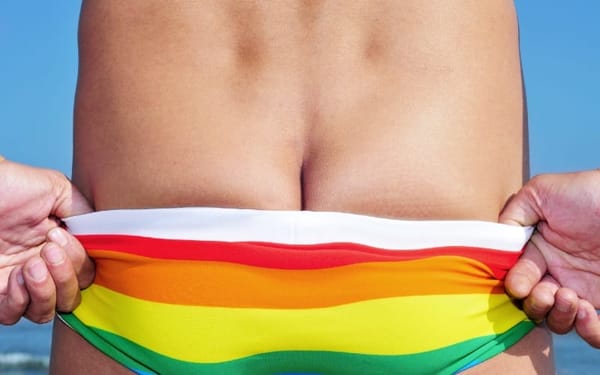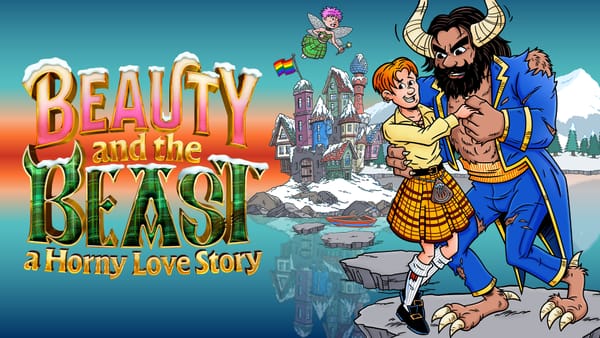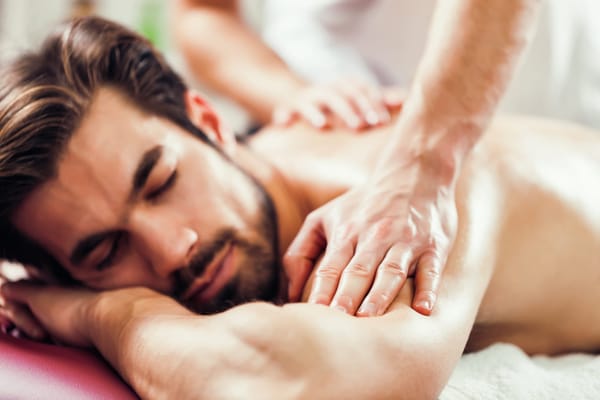Fringe Spotlight: KINDER
An exploration of childhood, queerness, and a risking tide of censorship.
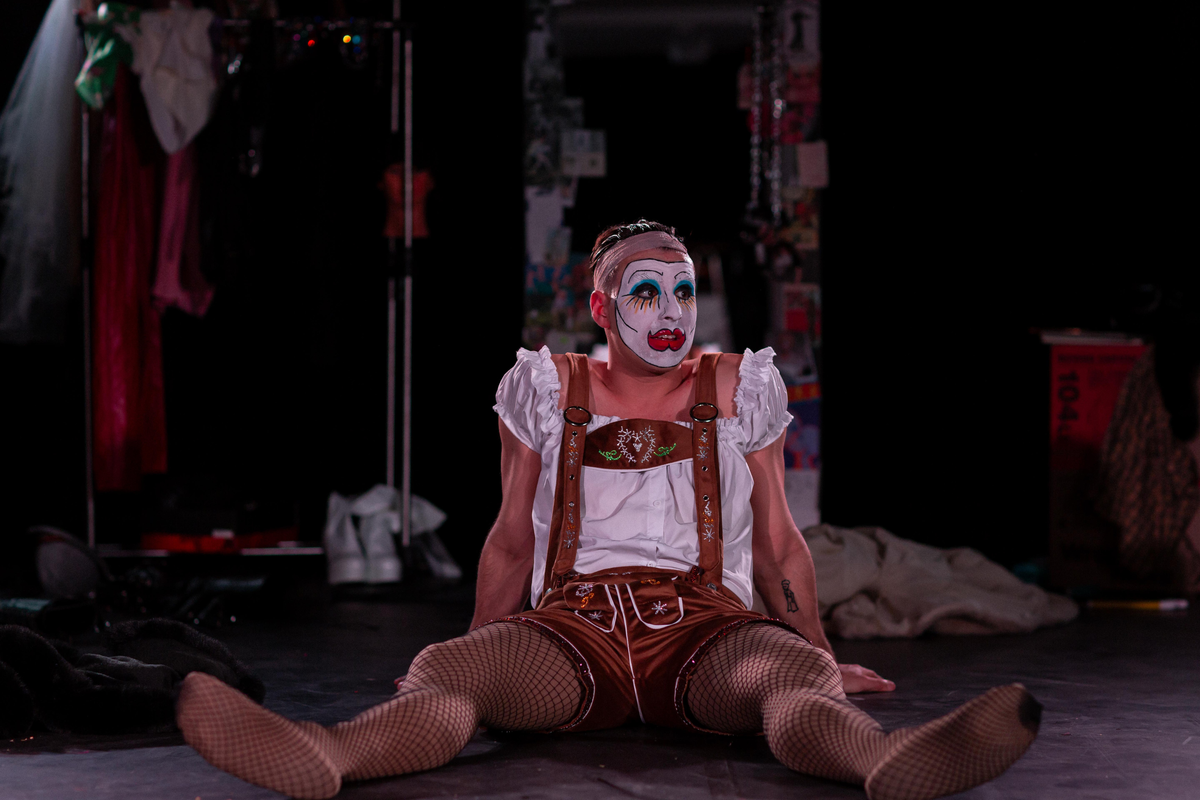
A drag artist. A library. And a catastrophic misunderstanding of a ‘reading hour’.
Created by Ryan Stewart, KINDER is an exploration of childhood, queerness, and a rising tide of censorship.
When newly arrived drag-clown Goody Prostate is mistakenly booked to perform at a children’s story time reading hour, they’ve no choice but to improvise a new act for an unimpressed audience of confused parents and unruly kids. But as Goody scrambles to adapt in real time, a camp, clownish meltdown emerges, spiralling them into a poignant interrogation of memory and misfits.
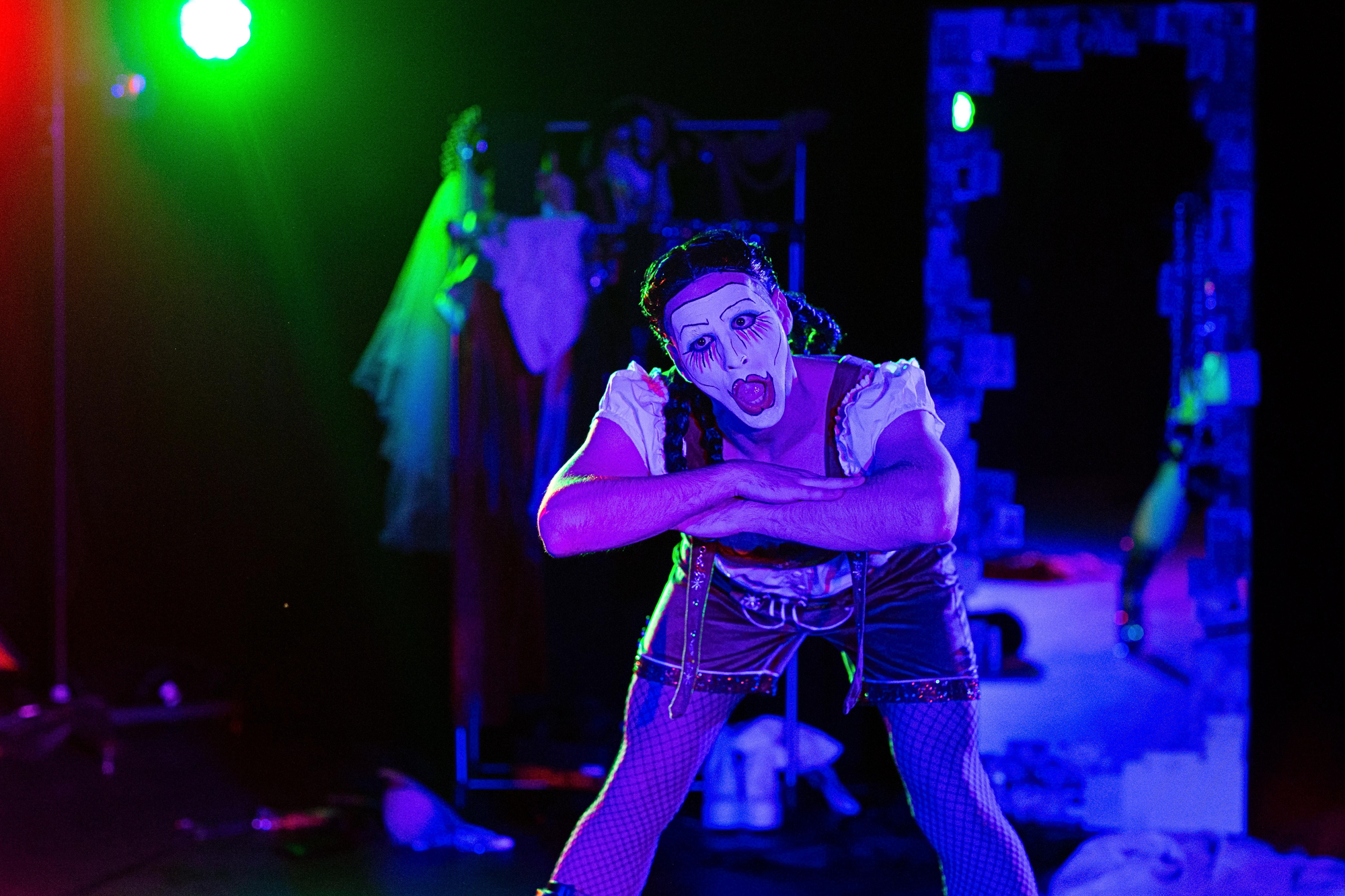
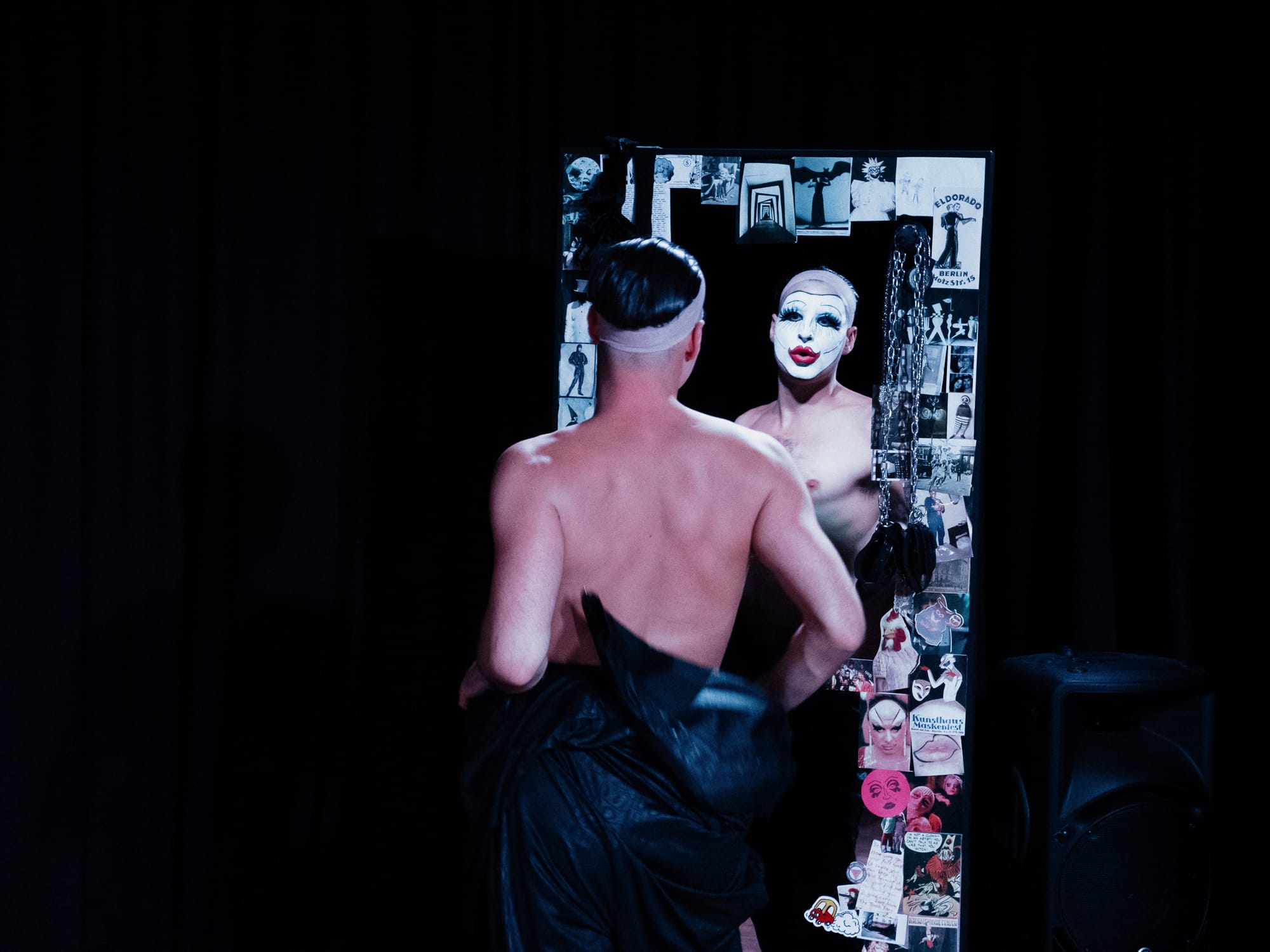
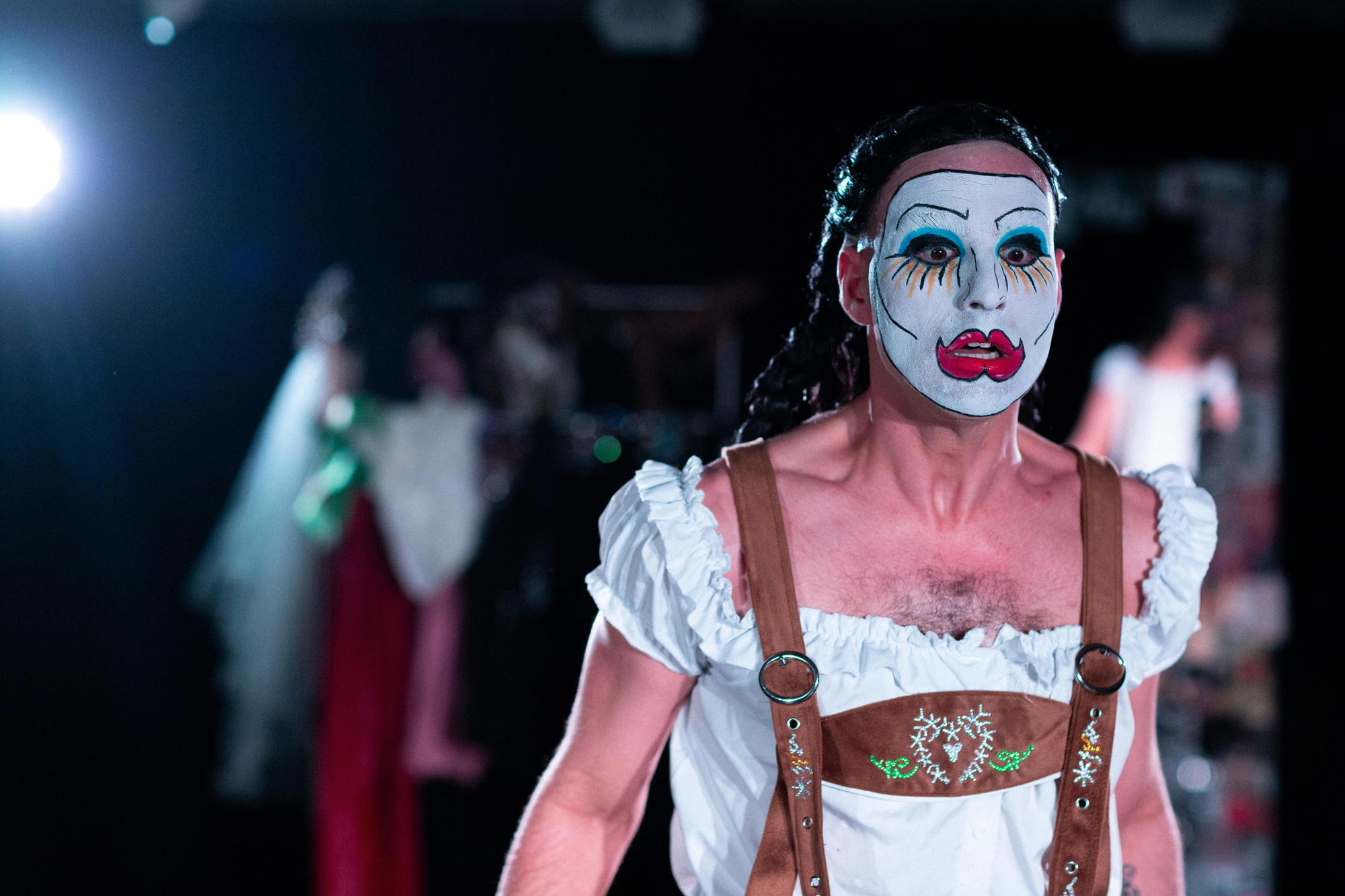
- Performance Dates: 31st July – 24th August 2025
- Venue: Underbelly Cowgate (Big Belly), 66 Cowgate, Edinburgh, EH1 1JX 60 minutes
- Tickets: www.underbellyedinburgh.co.uk
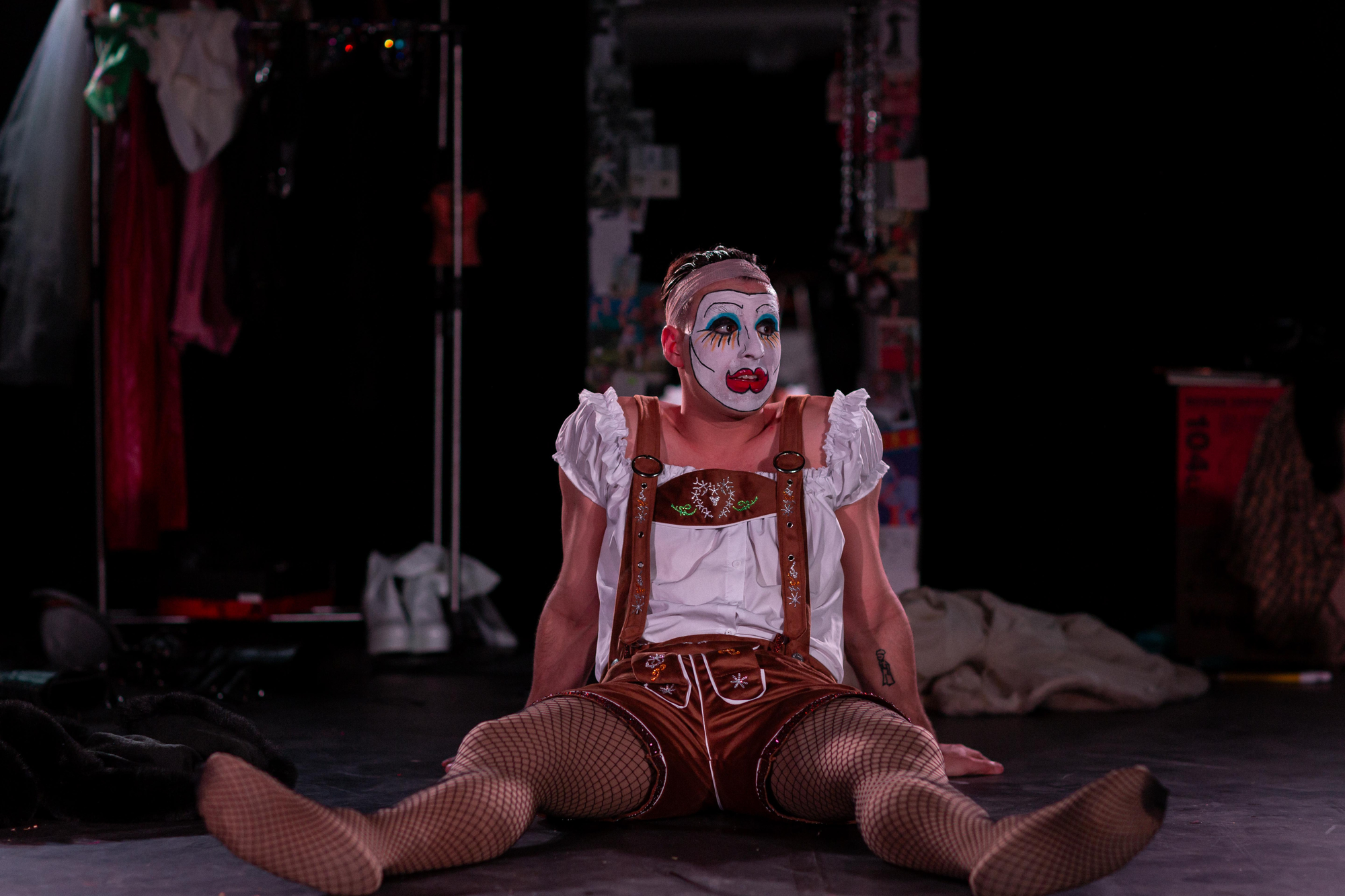
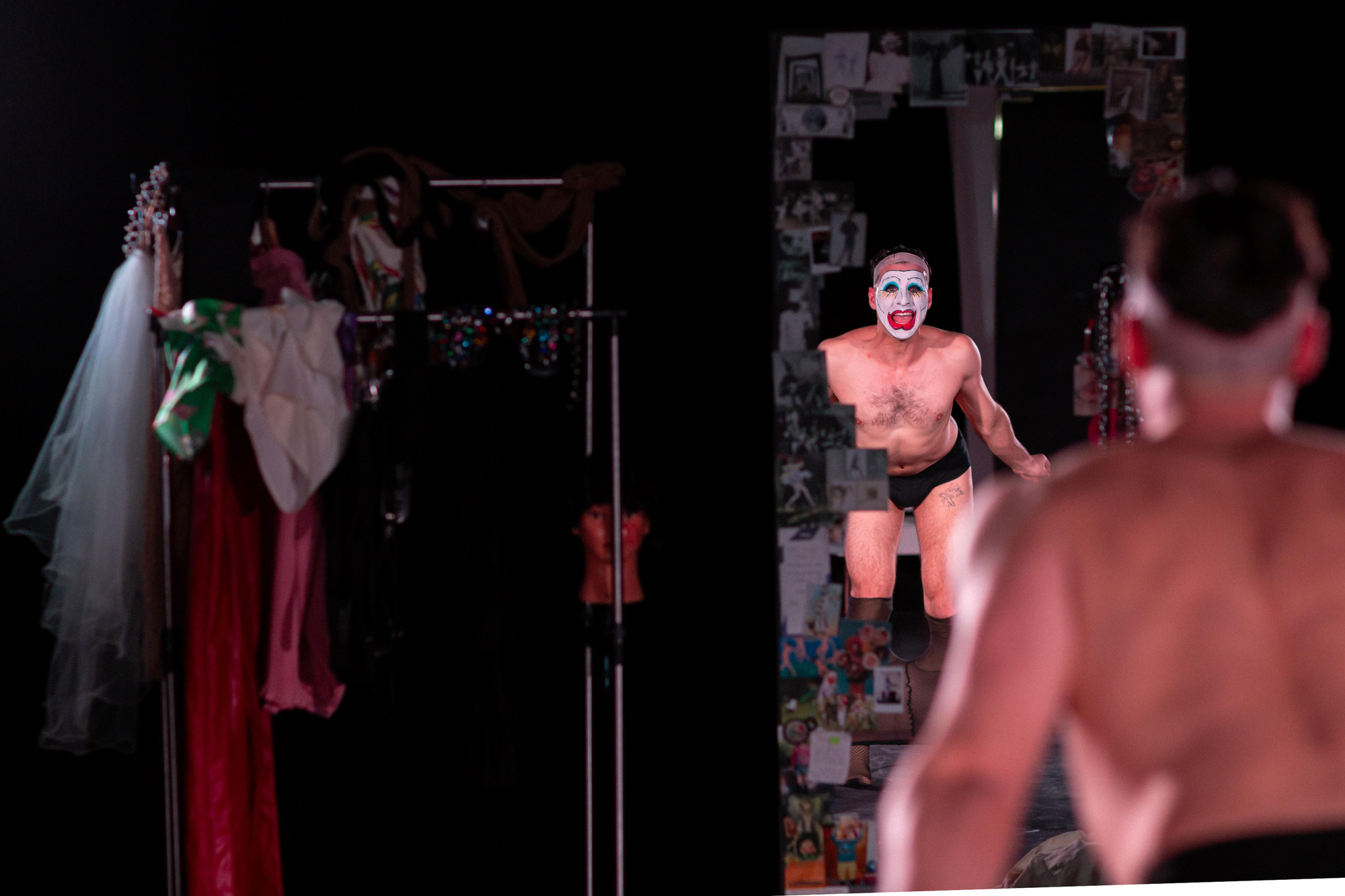
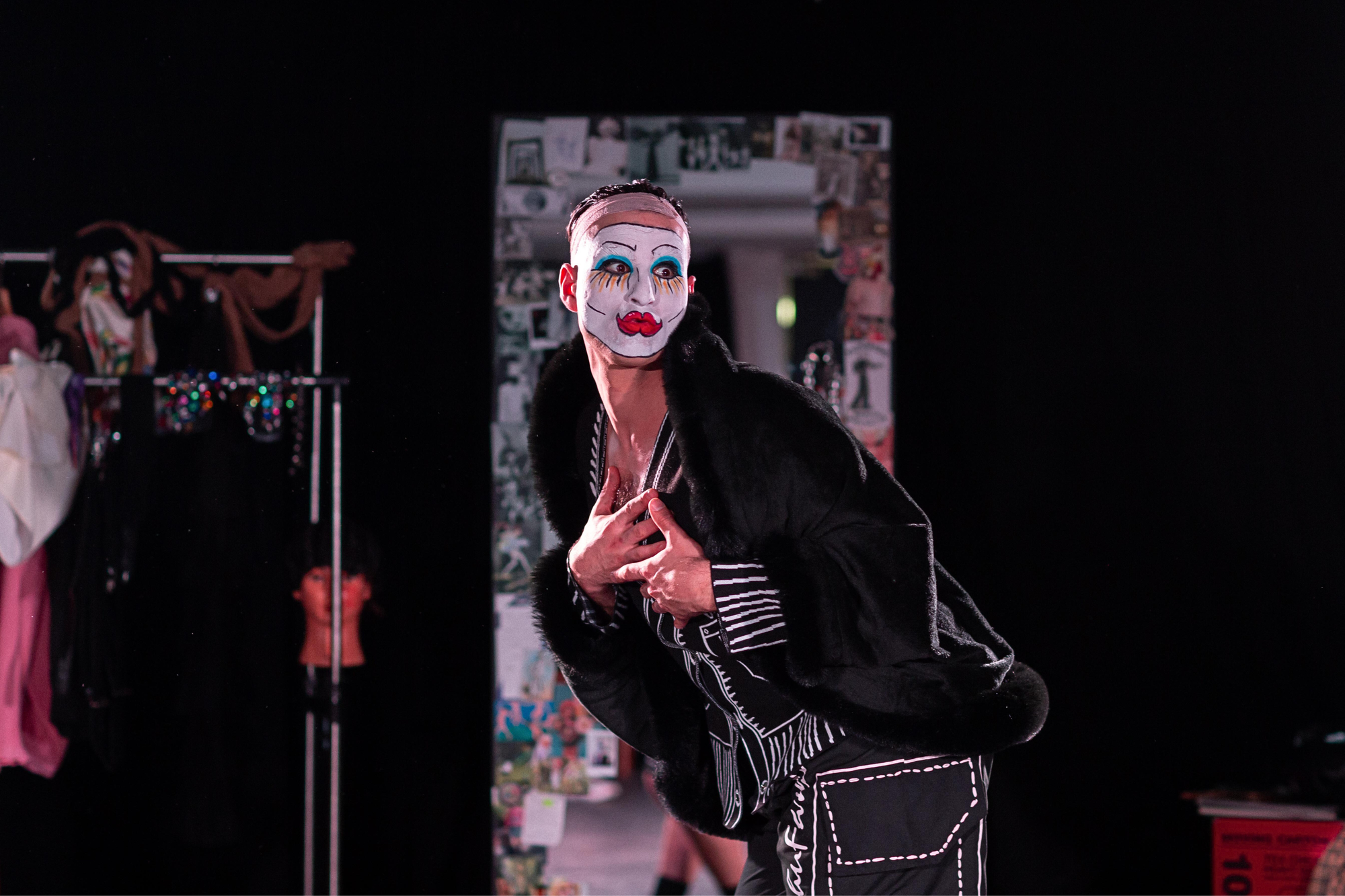
Ryan Stewart on How To Date Men
For our podcast, How To Date Men, we caught up with Ryan Stewart for a behind-the-scenes look at the show.
We talk drag story-time, navigating childhood, and the power of living by your own rules.
In KINDER, a drag clown is mistakenly booked to perform at a children's storytime and things kind of spiral from there. You said that this is an amalgam of fiction and biography. Have you experienced a disaster storytime gig?
I actually personally haven't, no. Funnily enough, it's more the drag clown side of the show that is more of the fictional side and it's much more of the spiralling out of control aspect of the show that I would say is a little bit more biographical.
That said though, I have a number of friends and colleagues who are seasoned drag artists and I'm very well versed with the stories of local queens that we have here in Melbourne and all over Australia who have had to face protesters at story times that they have been booked for or who have had bookings cancelled because of petitions that have been lodged or security concerns that have been raised by the venue because of certain threats and that kind of thing.
Whilst it's not something that I'm yet to personally experience, it's certainly something that I think is dominating the queer zeitgeist.
You touched on protests and how sort of emotionally and politically charged the idea of reading to children seems to have become. Why was this something that you wanted to explore?
Being a queer child, you're often sometimes a little bit of an odd child. So I think I had a bit more of a, you know, mature sensibility. Some of my confidants and my role models growing up were definitely sort of the ones that plied me with books and the world of literature and reading. You know, there's that classic trope of the close relationship that a queer kid has with their English teacher, for example. And I feel like that was so often the case for me because, you know, as a queer kid, books and reading and stories can so often be like a point of escape from a world that doesn't quite feel right to be yourself in.
So I guess the fact that the simple act of reading a book to a child has become such a front and center debate in a world today that is still plagued by conflict, bigotry, cost of living crises, and yet still people choose to direct their energy towards stopping an event that is aimed at bringing a little joy to the lives of children. That's sort of what drew me to the idea of wanting to explore that in the show.
Is KINDER advocating for schools and libraries to book more drag performers, more story time for kids?
I'm always down for drag artists to be able to diversify their income streams, you know, get as many bookings as possible. But I think a little bit more than that. It's really advocating for more of an understanding about the appeal that drag story times may have for children. and sort of the positive impact of that having an adult
present in a child's life who listens and cares for that well-being of that child and wants to provide an enjoyable experience for them.
You often hear some drag queens say, I don't actually want to do that anyway. I don't want to read to children. but is it just a case of people need to pay their bills or do some drag queens actually want to do story time?
Why do some drag performers read to children? I don't know, really. Certainly the character in my show that I've created does not want to do that at all. But just like there are drag artists who only want to perform in clubs to drunk patrons at 1am or drag artists whose characters only emerge in like a cabaret that they're doing or a theatre show like me for example, I'm not doing drag that much outside of this specific context. Some drag performers I think are just drawn to the idea of having children as their audiences, just like other children's entertainers like The Wiggles or you know Mr. Rogers back when he had you know Mr. Rogers' neighbourhood. They can be an incredibly interesting audience. Children don't really have a filter.
They kind of say it as it is and they're really, really inquisitive. And I think those can all be really endearing qualities to a performer. So I can see the appeal of why, you know, a drag artist may want to do something like a story time.
Queer people often have a difficult relationship with their childhood. I'm interested in how that sort of tension might be shaping this show?
This show particularly looks at the idea of stories. It looks at the stories that we tell ourselves about our own lives So about what it means to be grown up or what it means to be an adult.
One of the most pervasive stories that we continue to raise children in is this idea of compulsory heteronormativity. So like that idea that, you know, when they grow up, they'll marry someone of the opposite sex, they'll buy a house, they'll get a job, they'll have their what is it, two and a half children on average, 2.6 children. I don't know, so on. And so that tension I think that queer people often experience in their own childhood arises from that sort of presumed heterosexuality that's often placed on children. You know, I think we've all experienced examples of adults asking little boys and girls if they have a preschool girlfriend or boyfriend or the amount of examples of presumed heterosexuality in things like children's clothing, for example. You know, I've seen t-shirts before meant for, you know, two to three year old boys that say something like, hide your daughters or ladies man, which is really, really creepy and weird. And so, you know, when, when children are growing up and they realise that there's something different about them, something that might not really align with the story that they're being told or that they've had drilled into them from the time that they could start forming thoughts and memories about the world, they feel like they can't talk about it or that something might be wrong with them. And so they bottle that up inside. And I think that's why that tension that so many queer people feel about their own childhoods manifests.
Is that what feeds the spiral of your character in this show? Is that what is triggering some of that unraveling?
Yeah, this sort of rupturing of what they thought they were going to be doing, but what is the actual reality of their situation, of pulls the rug out from under them and forces them to confront a lot of things that they haven't been thinking about themselves or the world around them.
Has the process of putting the show together and performing it, has that changed your perspective on your own childhood and those tensions?
Yeah, I think absolutely it has. I think if anything, it's sort of given me a little bit more empathy for the sorts of things that my little brain was trying to comprehend back then. And a bit of sympathy for some of the ways that I may have acted out because I was trying to grapple with that tension that we discussed before without having the vocabulary to be able to articulate exactly what I was feeling. I think maybe more than that though, it's kind of giving me a bit of a better perspective on understanding childhood as it is today and sort of how so much of that tension may be amplified by the sort of techno centric world that kids are growing up in. I think about what my childhood would have been like if there was such a big focus on social media and stuff as kids are having to face today. These ideas of gender essentialism, you know, that there is some inherent biological way that boys and men should behave and some inherent way that girls and women should behave. It's having a real resurgence today and we hear about things like the rise of the manosphere or this trend of that is coming back and it's really scary. Like I think there are kids out there who are consuming this sort of stuff. Kids who don't feel like they're manly enough or, you know, girly enough or kids who like me didn't quite feel like they fit into either of those categories. You know, I always remember we would sometimes go to a department store or Kmart or something like that and I would walk with my mum through the women's section and I was like, gosh mum, I wish I was a girl, there's so many more options for clothing. And she would just like laugh it off and I think back to something like that and I'm like, gosh, that's, it's cute, it's a funny cute thing that a kid says but my heart aches a little bit - the boxes that kids are trying to squeeze themselves into just to kind of move safely throughout the world. I think that's the kind of understanding about childhood that the show has really brought for me.
What do you hope that people feel when they come to see KINDER?
I mainly just hope that people have a laugh with me. I mean, there's some shit that we talk about. There's some stuff that we go through together, but at the end, I just hope that we have a good laugh. I really sort of just want people to come out of the show understanding that, societal limitations aside, the law aside, we can really sort of create any path that we want for ourselves. and for our children - that we can imagine different lives for ourselves.
When I was just sort of newly an adult, I was 18, I remember I moved out of home and one night I remember thinking to myself, hmm, I would really love a honeycomb maxi-bon right now. And then I realized that I could just go and do that and go and get it. And I did. I did and it was great.
We have that ability, you know, we have the ability to go and get the honeycomb maxi-bon. Individually and collectively, we can imagine and live out a different future for ourselves. And I think queer people are doing that every day. And that's not something to be scared about. But I think many people do find that scary because it kind of butts up against what they themselves have been told. This is what life is. This is what adulthood is. This is what being a grownup is.
That gap between the, the aspiration and the perception. And when you realise the reality isn't sort of meeting that, that's a bit of a mind-fuck, isn't it?
Exactly, exactly. You sit down and you realise that you're whatever age and life has passed you by and this is the sort of life that you made for yourself. But I feel like the way of doing things like we are at the moment certainly isn't working. Like I don't think many adults right now are moving about the world in a way that is like, I'm fulfilled. I'm having my needs met and my children are in a fantastic place. If you're a grown up out there, if you're a parent out there and that is your life, congratulations. I'm so happy for you. I am definitely not at all jealous. But for me and for a lot of other people I know, it's not working.
So I guess that's what I hope people feel when they come out of the show and that they can take back out into the world with them when they leave the theatre.
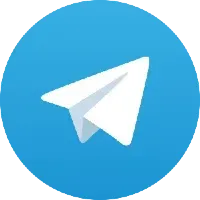
The NSFW edition
If you want to admire some man-on-man action, our NSFW edition gives you every inch.
Sign in and check out our NSFW content - it's free!
